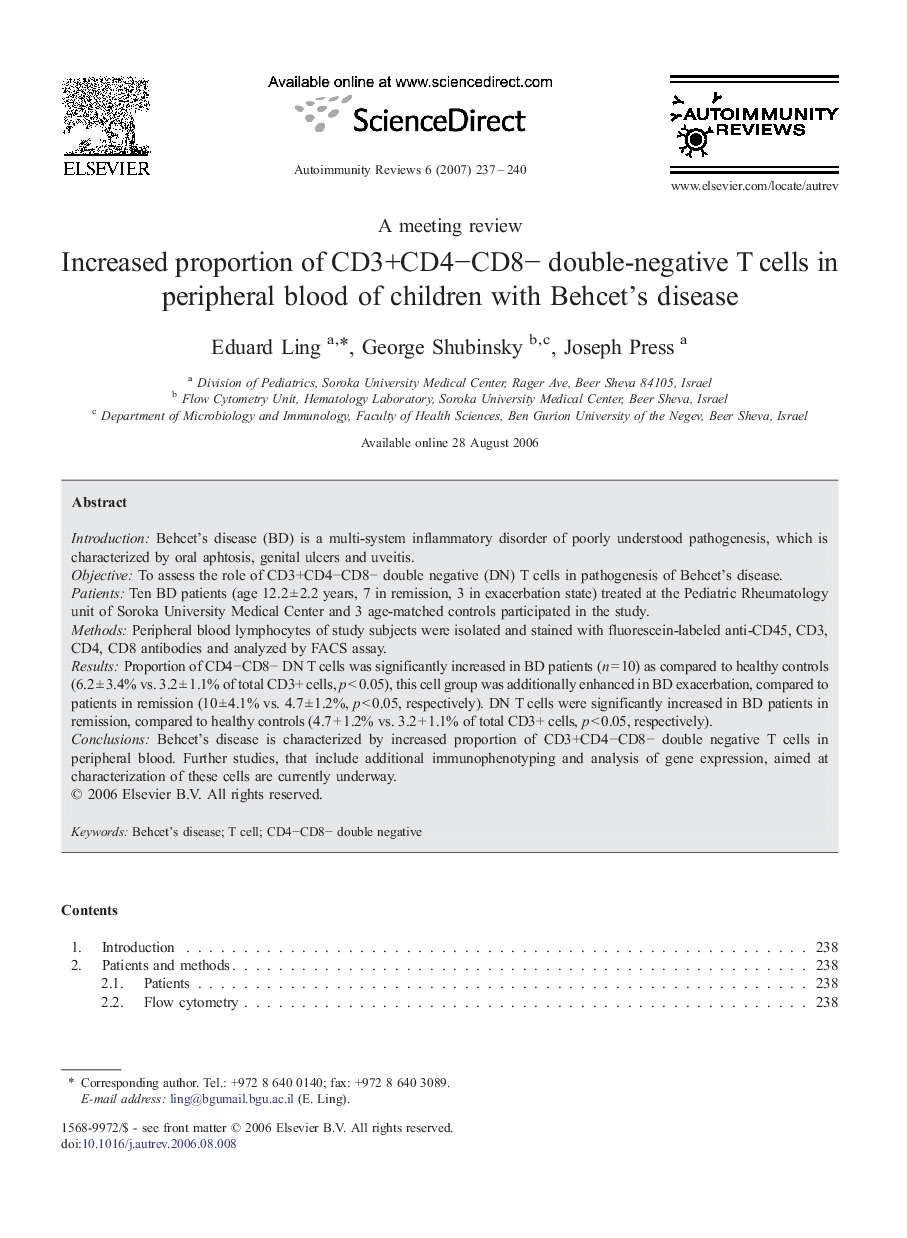| Article ID | Journal | Published Year | Pages | File Type |
|---|---|---|---|---|
| 3342727 | Autoimmunity Reviews | 2007 | 4 Pages |
IntroductionBehcet's disease (BD) is a multi-system inflammatory disorder of poorly understood pathogenesis, which is characterized by oral aphtosis, genital ulcers and uveitis.ObjectiveTo assess the role of CD3+CD4−CD8− double negative (DN) T cells in pathogenesis of Behcet's disease.PatientsTen BD patients (age 12.2 ± 2.2 years, 7 in remission, 3 in exacerbation state) treated at the Pediatric Rheumatology unit of Soroka University Medical Center and 3 age-matched controls participated in the study.MethodsPeripheral blood lymphocytes of study subjects were isolated and stained with fluorescein-labeled anti-CD45, CD3, CD4, CD8 antibodies and analyzed by FACS assay.ResultsProportion of CD4−CD8− DN T cells was significantly increased in BD patients (n = 10) as compared to healthy controls (6.2 ± 3.4% vs. 3.2 ± 1.1% of total CD3+ cells, p < 0.05), this cell group was additionally enhanced in BD exacerbation, compared to patients in remission (10 ± 4.1% vs. 4.7 ± 1.2%, p < 0.05, respectively). DN T cells were significantly increased in BD patients in remission, compared to healthy controls (4.7 + 1.2% vs. 3.2 + 1.1% of total CD3+ cells, p < 0.05, respectively).ConclusionsBehcet's disease is characterized by increased proportion of CD3+CD4−CD8− double negative T cells in peripheral blood. Further studies, that include additional immunophenotyping and analysis of gene expression, aimed at characterization of these cells are currently underway.
